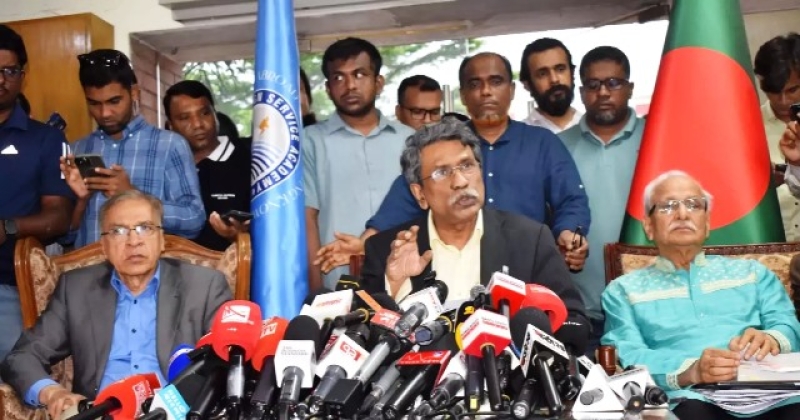- Israel Strikes Tehran with US Support Amid Nuclear Tensions |
- India Sees 9% Drop in Foreign Tourists as Bangladesh Visits Plunge |
- Dhaka Urges Restraint in Pakistan-Afghan War |
- Guterres Urges Action on Safe Migration Pact |
- OpenAI Raises $110B in Amazon-Led Funding |
Pol. Parties Must Work to Consolidate win Over Autocracy

Prof. Ali Riaz spesks at a programme of the Consensus Commission recently.
As Bangladesh stands on the cusp of a historic transition from authoritarian rule to democratic rebirth, the political landscape is being tested—not by the strength of its reforms, but by the fragility of its unity. The National Consensus Commission, after months of painstaking dialogue, has nearly finalized the July National Charter 2025—a blueprint for sweeping constitutional, electoral, and institutional reforms. Yet, instead of rallying around this shared achievement, political parties are slipping into familiar patterns of mudslinging, blame games, and divisive rhetoric.
The July-August 2024 mass uprising, which claimed over 1,400 lives, was a collective cry against fascism and injustice. The sacrifices made during that movement were not for partisan gain but for a democratic future. Trials for the killings are underway, and the interim government, led by Professor Muhammad Yunus, is striving to restore law and order amid mounting public impatience. Yet, political actors seem more invested in scoring points than securing progress. Islamist parties have pushed for proportional representation, while BNP and its allies remain opposed. Allegations of toll collection by party workers and favoritism toward certain parties have further eroded public trust. Disputes over the caretaker government’s structure and the appointment of its chief adviser threaten to derail consensus.
These disagreements, while legitimate in a pluralistic democracy, must not overshadow the shared goal: a peaceful, credible election that honors the July Charter’s spirit. Democracy thrives on diversity of thought, not uniformity. It is neither desirable nor practical for all parties to agree on every issue. But unity on minimum points—such as the commitment to reforms, respect for electoral integrity, and protection of fundamental rights—is essential. The July Charter is expected to offer a framework for this unity, with binding commitments to complete reforms within two years of the next election.
Political leaders must recognize that a stalemate now would squander the moral victory over autocracy. The people who braved bullets and brutality did not do so to witness another cycle of elite infighting. They demand accountability, transparency, and above all, cooperation.
Despite the noise, there is reason to hope. Over 30 parties have participated in reform talks. Consensus has been reached on key issues like judicial independence, electoral fairness, and term limits for the prime minister. These are not small feats—they are the building blocks of a new democratic order.
Let this moment not be remembered for missed opportunities, but for a collective leap forward. Political parties must rise above petty rivalries and honor the sacrifices of the July martyrs. The road to democracy is not paved with perfection, but with perseverance and partnership.
The people of Bangladesh are watching. And they deserve better.

